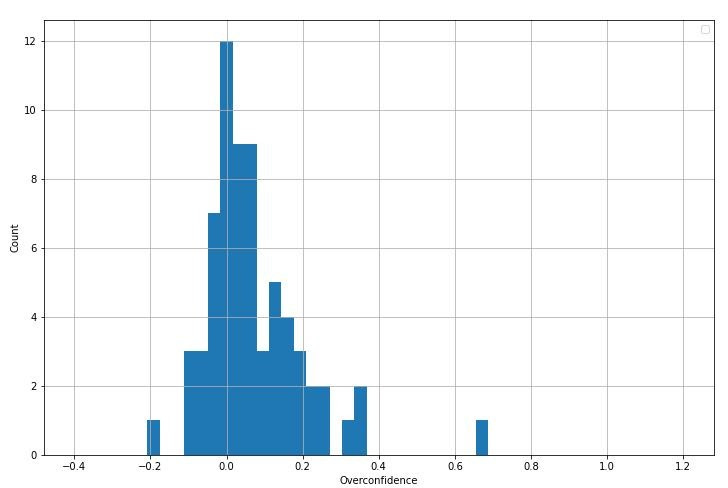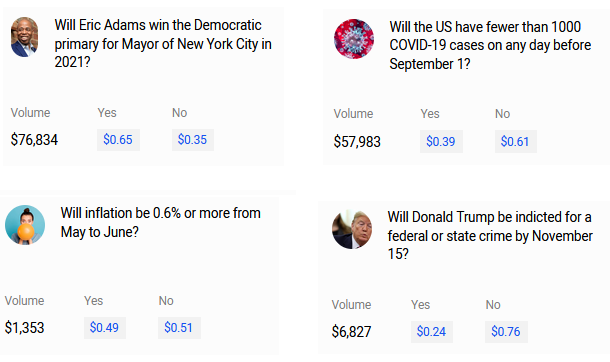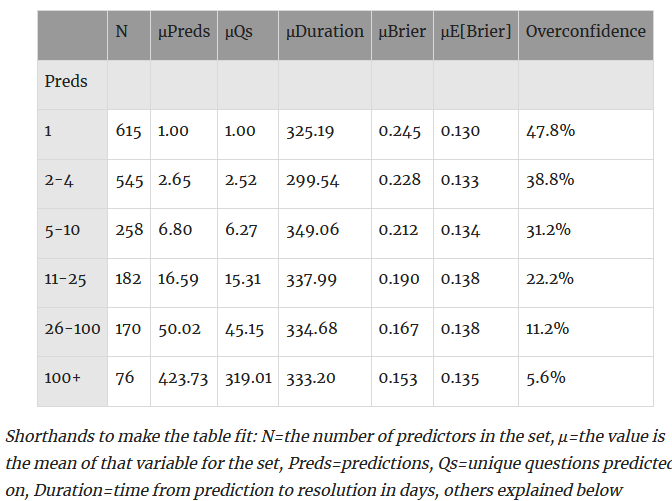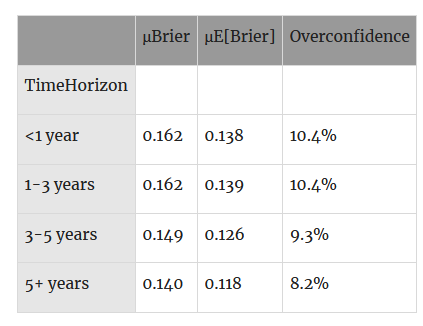Mantic Monday 6/21/21
Among this month’s interesting Metaculus predictions:
If Puerto Rico gets statehood, will their first two senators both be Democrats? 50%. I’d seen accusations that the Democrats want Puerto Rican statehood to seize a Senate advantage, and counterarguments that no, PR isn’t as solid-blue as people like to think, but this is the first time I’ve ever seen the “risk” of a PR Republican Senator quantified. Higher than I thought!
Will Jeff Bezos make a big investment in anti-aging this year? 25%
Aubrey de Grey has hinted that somebody really big is about to get into the anti-aging/longevity field, and speculation has centered on a newly-retired and not-getting-any-younger (so far!) Jeff Bezos. This prediction resolves as true if Bezos puts at least $50 million into anti-aging.
Will crypto sites default before 2023? Bitmex 26%, Binance 15%, Coinbase 5%
Not many predictions here, so don’t take these numbers too seriously. I also don’t know what a “default” would mean in this sense - default to at least one customer, but everyone else is okay? Lose all its money to a hack?
What will Prospera’s population be in 2035?Approximately 0
Prospera is a charter city taking shape in Honduras; see here for more. They’re planning to have 10,000 residents by 2025, and 100,000 by some unspecified point in the future. Metaculus doesn’t think it will happen; more than half of forecasters say they’ll have fewer than 100 residents in 2035 (presumably because they have failed and ceased to exist) and only 10% of forecasters think they’ll have more than 10,000, which would be a bare minimum for partial success. So far no predictions on Ciudad Morazan, the other incipient Honduran charter city.
I’m happy to report that getting money into Polymarket has gone from impossible to merely annoying. Non-Americans can apparently do it directly with a credit card; Americans will have to send USDC, separately send Ethereum to a different address to cover transaction fees, then wait ~10 minutes for everything to percolate through. My level of crypto knowledge is “can use Coinbase” and I was able to figure it out. There’s also apparently an easier way with a Metamask wallet, which I didn’t try.
Here are some of the more interesting Polymarket markets open:
For comparison, PredictIt has Adams at 64%, so some good convergence going on here. PredictIt’s NYC mayor market says “17 million shares traded” - if an average share is 50 cents, that means PredictIt has about $8.5 million in volume. Polymarket works a little differently and has yes/no markets for each candidate; the vast majority (a little over $1 million) is on the Yang market. So Polymarket has a little over 10% of the liquidity of PredictIt on this one.
Charles Dillon of Rethink Priorities has a post on the Effective Altruism Forum: Data on forecasting accuracy across different time horizons and levels of forecaster experience.
It looks mostly at PredictionBook, a site where people record their own predictions without a lot of the aggregation or betting functions of traditional markets, and it mainly addresses two questions. First, do more experienced predictors do better? Second, how does accuracy change over longer time horizons?
The answer to the first question is a simple yes:
People who made 100+ predictions had a lower Brier score (lower = better) than people who made fewer, and were less overconfident. This doesn’t prove that experience helps; it could just be that smarter people were more likely to use the site more. But it probably suggests that experience helps. No surprise here.
You’ll also notice that the 100+ group’s score of 0.153 is pretty close to μE[Brier], aka the score they would get with perfect calibration. These people may not know everything, but they are super well-calibrated.
 Look at that beautiful peak at 0% overconfidence!
Look at that beautiful peak at 0% overconfidence!
What about the second question - do people do better or worse on longer-time-horizon predictions?
They do better! Since the set of questions people answered was kind of random, Dillon suggests that maybe people asked themselves easier questions about the far future than the near future. This feels intuitively plausible - think about the year 2075 and you might ask questions like “Will the US still exist then?” - think about next month and your questions might be more like “Will the market go up or down?” If it’s easier to predict long-term trends than short-term fluctuations, this might cause a general pattern of people doing better at longer-term questions.
Speaking of market fluctuations, the big econ news this month has been inflation. This is exactly the sort of thing where prediction is simple and potentially really useful, and sure enough many people are trying to predict it.
Chris of Karlstack says he bet on high inflation on Polymarket (and presumably won, given last month’s data). Matt Yglesias admits he got a previous low inflation prediction wrong (at 90% confidence, no less!). These people are good and deserve praise.
I’m concerned about everyone else. Lots of celebrity economists seem to have some position on inflation. I take it that Larry Summers and Tyler Cowen are a bit more worried, and Jerome Powell and Matt Yglesias a bit less so. So by the end of the year, we know that inflation was some amount, and then who’s right?
Partly because of my superficial reading and partly because of my poor understanding of macroeconomics, I don’t have a good sense of where exactly everyone’s views diverge. If we have 3.5% inflation but employment numbers look good, is this a victory for Cowen and Summers? For Yglesias and Powell? Do both of them secretly agree on everything and they’re just looking at it from different angles? Where do other people whose opinions I’m told I should care about, like Paul Krugman, fall here?
I worry that five years from now, something will happen or not happen, and everyone will say it’s basically what they predicted or at least they didn’t rule it out, and I won’t get any extra information from this.
I don’t always insist that people make formal predictions with percent confidence. But this would be a great time for economists and econ pundits to do that.
I would also be interested in someone putting together a web page with every famous person’s opinion on how this is going to play out, and what it implies, so that in five years when things do or don’t happen, and people say they predicted this all along, we can say “we made a good-faith effort to figure out what your opinion was back in 2021, and decided you thought X, and put it up on this webpage, and you didn’t object that it was a false representation of your views, so probably you thought X”.


